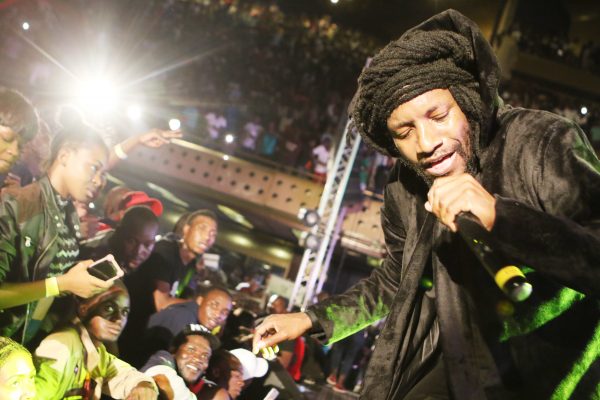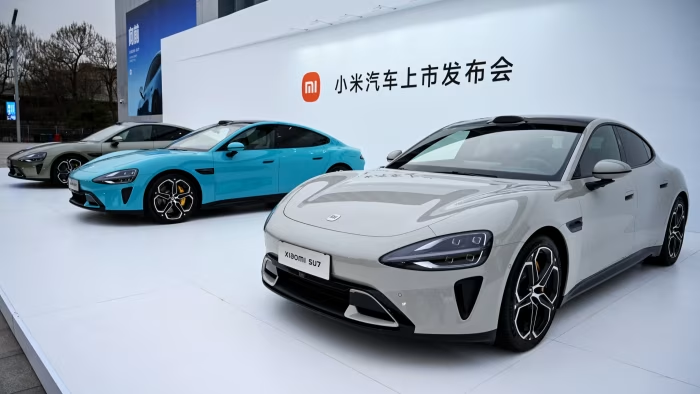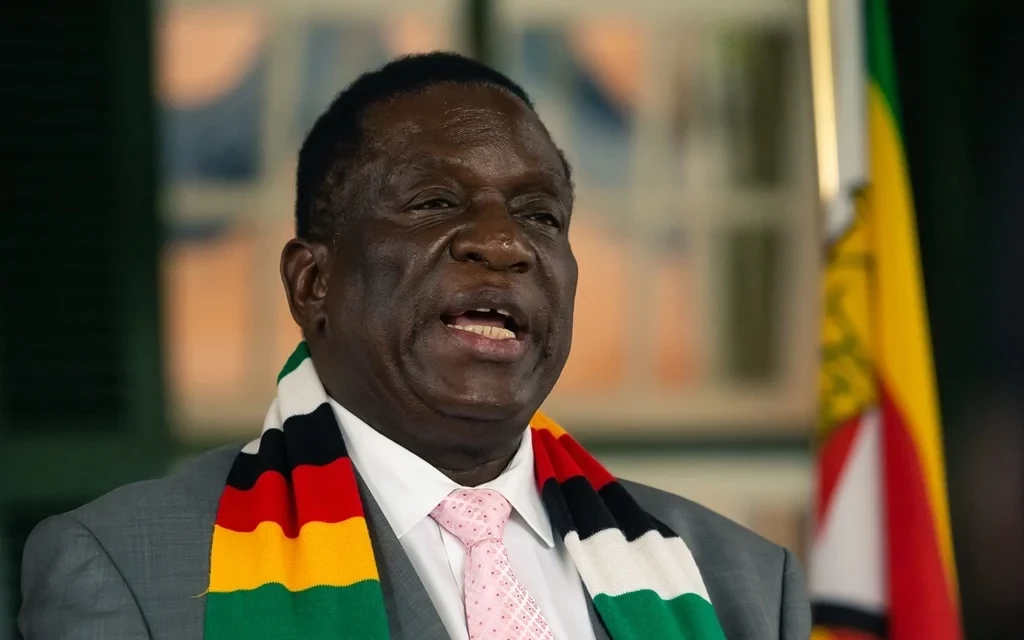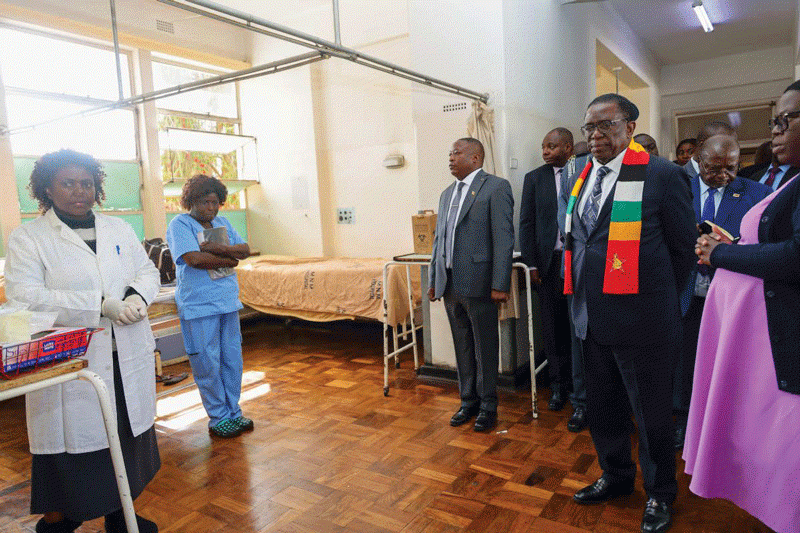
As the nation prepares for the drama that traditionally follows the arts awards season in the first half of 2019, there has not been much to talk about for most arts genres this year except music, which apparently makes life in Zimbabwe tick.
By Kennedy Nyavaya/MOSES MUGUGUNYEKI

Within this landlocked southern African nation, music is more than catchy lyrics and groovy beats. It defines everyday life and in some instances even prophesies the future.
Expectedly, a lot has happened in the music industry this year and while debate revolves around who will be crowned musician of the year or what piece of work will earn the coveted song of the year award, there is a lot to take away from the past 11 months.
And of course, apart from the melodies, it is the artistes’ way of life that keeps music followers captivated with their heroes.
From contesting in elections, domestic controversies and production of dirty lyrics, the year has been nothing short of being dramatic.
The elevation of the new National Arts Council of Zimbabwe (NACZ) director Nicholas Moyo as well as the appointment of Olympic gold medal winner Kirsty Coventry as minister of Sports, Arts, Youths and Culture have also brought with it major talking points.
- Chamisa under fire over US$120K donation
- Mavhunga puts DeMbare into Chibuku quarterfinals
- Pension funds bet on Cabora Bassa oilfields
- Councils defy govt fire tender directive
Keep Reading
So, with a few days left before we begin another 365 days, The Standard Style goes back on the memory lane to reflect on the characters that hogged the limelight for all the good and bad reasons.
When artistes invade the political playing field
Zimbabwe’s July elections to choose the country’s president, legislators and councillors saw a surprisingly big number of artistes throwing their hats into the political ring as they sought political office. Renowned sculptor-cum-musician Bryn Mteki defied odds by becoming the first artiste to enter the presidential race and went on to give himself a new ‘presidential’ look in apparent anticipation of a surprise win. Needless to say, he lost in spectacular fashion. Along with Mteki in this futile attempt for political office was Hosiah Chipanga, Nkululeko Nkala and Lewis Ndlovu. They all fell silently by the wayside, without enough votes to fill their hands.
The sector was, however, not entirely without smiles, especially for those that rode on the Zanu PF political horse. Forgotten musicians Joshua Sacco and Elias Musakwa pulled through to land places in the House of Parliament and their success can be credited to persistence and ability to swallow humiliation – something that Musakwa takes the kudos for.
The masters of dirty lyrics
Arguably in its failure to capture national appeal, what is left of Zimbabwe’s new school of music, especially Zimdancehall, are high-sounding vulgarities, encouragement of drug abuse and general moral decadence, violence and self-praise among a whole lot of lousy attempts at music. The new phenomenon is a far cry from just a few years ago where Zimdancehall had become intergenerational… when older folk had come to appreciate and warm-up to the likes of Winky D, Tocky Vibes and Killer T, among others.
However, they too have had to separate themselves from the other bunch by shunning popular riddims (a beat that usually accommodates a group of singers) and opting for their own specific productions. Tocky Vibes is a case in point… virtually changing his music completely. Zimdancehall has fast digressed from being about amplifying the struggle and aspirations of ghetto youths; sinking pitifully into bubble-gum anthems and aphrodisiac nonsense. The dirty connotative meaning of hit songs like Sweetie by Jah Signal, Kanjiva by Enzo Ishall and Hwinza’s Sombonyo/Ndiani and their astounding approval from like-minded corrupt souls speaks volumes of the social fabric that they have become.
And for the industry’s bad boys
Fame and controversy are known twin evils for most celebrities across the world. From international stars such as Chris Brown, Beyonce and Jay Z, among others, controversy has seemed so fashionable that without it, the road to stardom would be bleak. Some of the latest developments on the local showbiz scene show that Zimbabwe’s stars are indeed borrowing a leaf from trends of the western world. The music industry in Zimbabwe has of late become the biggest platform where defiance of moral values has become trendy, notwithstanding the unwarranted ridicule and shame it has brought to most stars.
Award-winning chanter, Soul Jah Love is not willing to repent from his ways that have seen him end up either in hospital or behind bars. Apart from recently causing havoc at the airport, the man bashed his wife earlier this year and is on record admitting that he abuses drugs. Someone needs to save his soul urgently.
And in a classic case of selective amnesia, musician Tytan Nkomo almost betrayed his vows to spark a possible divorce after chats of him flirting with a UK-based woman emerged online less than two months after his marriage to controversial Olinda Chapel. Maybe the Bho singer needs constant reminder that he is now officially off the market before he pounces upon all groupies on his social media timeline.
Meanwhile, Afro-pop star Andy Muridzo landed himself in hot soup after breaking up with his wife “baby mana” (Mai Keketso) apparently for a rich Harare woman. A large section of his fans were so angry with him to a point of threatening to boycott his music. There is no doubt that he is an adult and has a right to choose his partners, but sacrificing the subsequent loss of family and a fan base for a lover may not be a very wise idea.
Zim hip-hop’s bottomless pit of non-existence
It is hard to imagine that at one point the local version of hip-hop may gain significance beyond brief chart topping singles on the nation’s urban radio stations, which are no match, in terms of listenership, to the vernacular ones. So sad is the Zim hip-hop situation that when one compares it to their counterparts on the southern side of the Limpopo River, the local lads appear to be in lack of seriousness. Beyond the heavy investment into decent clothing, seriously rehearsed American English twang, as well as steady social media followership, there appears to be nothing the genre has to offer the local market. A perfect example to prove this would be musician Takura who despite all inroads and music he made this year, still failed to go ahead with the Fill-up HICC concept while other musicians are filling the same venue for fun nowadays. The Zim hip-hop awards are also said to have hit an all-time low this year in what could further compromise their credibility. However, in the unforgiving music industry, hip-hop artistes need to be reminded that they are the champions of their own destiny and no one will invite them to the success table, hence they need to get up and show up anyway.
Of economic hardships and the squeeze on entertainment
The current economic crunch particularly in the last quarter of the year did not spare arts promoters and musicians alike and this has had an adverse effect on the entertainment sector. The traditional summer celebrations were virtually suspended this year as many patrons’ buying power diminished. If nothing changes then artistes, who now depend on live performance for income generation owing to piracy, are doomed.
Pageantry
In the world of pageantry, Zimbabwe’s two flagship pageants, Miss Tourism Zimbabwe and Miss World Zimbabwe, clashed on the dates, forcing the former to move their show from September 8 to September 22.
Licence holder for Miss Tourism Zimbabwe Sarah Mpofu Sibanda, who wanted to have the pageant run concurrently with the annual Sanganai/Hlanganani world tourism expo in Bulawayo, had to give in to the demands of the Miss World Zimbabwe pageant — a baby of Marry Mubaiwa-Chiwenga, the wife of Vice-President Constantino Chiwenga.
Masvingo model Belinda Potts was crowned Miss World Zimbabwe at the gaudy ceremony that was powered by Big Time Strategic Group, a South African company owned by Zimbabwean business tycoon Justice Maphosa. Patricia Muchenje was adjudged first princess, while Kuziwakwashe Mujakachi scooped both the People’s Choice award and second princess title.
Twenty-three-year-old lawyer with Mhungu and Associates Legal Practitioners, Tafadzwa Primrose Jaricha, shrugged off stiff competition from 20 other beauties to clinch the Miss Tourism Zimbabwe crown at Rainbow Hotel in Bulawayo on September 22.
Mashonaland East province’s Natalie Tariro Chido Mangondo (22) and Life Deliwe Matunzeni (22) from Manicaland province were crowned first and second princess respectively.
The 2018 Hall of Shame
The Zimbabwe Tourism Authority deserves to be inducted into the 2018 Hall of Shame following their failure to host the Harare International Carnival this year. Their failure coupled with the controversial appointment of businessman Genius “Ginimbi” Kadungure as carnival ambassador made a mockery of the local tourism board.
This year’s edition of the cultural fiesta, which could have been done a week before the general elections in July, was marred by postponements with the tourism board citing elections and a cholera outbreak as the reasons for deferment.
However, it was the appointment of Kadungure as the face of the carnival that sent tongues wagging The controversial businessman has been in the courts several times facing fraud allegations.
Mukanya’s triumphant return
After 14 years in exile in the United States, Chimurenga music maestro Thomas “Mukanya” Mapfumo returned home in April, thanks to the “new dispensation”. Mapfumo went on to perform before a full house at Glamis Arena at a gig dubbed the Welcome Back Bira on April 28, which was hugely successful.
Mukanya is back in the country again and has since the beginning of the month lined up 10 shows across Zimbabwe under the banner Peace Tour. He is scheduled to re-do the Gweru show which was abandoned under very curious circumstances.
New albums
Big names on the local music scene Jah Prayzah and Alick Macheso have, as per tradition, released new albums this year. First it was Macheso who on June 8 settled matters when he launched his 11th album, Dzinosvitsa Kure, at Chitungwiza Aquatic Complex.
Dzinosvitsa Kure seems to have reconnected Baba Sharo with his legion of followers better than his 2017 offering Tsoka Dzerwendo although it contained hits such as Gungwa, Wandirangaridza and Mude Mude.
Tracks on the new offering such as Kudzwayi, Ndakakutadzirei, Chikuru Kurarama, Pfuma Yacho, Madzitete and Vane Zvavanoda have proved popular among sungura music lovers.
Jah Prayzah, who has been basking on continental glory, remembered his local fans when he released his 13-track album Chitubu in early November. As expected, it was a five-star event that was attended by the Who is Who on the local entertainment scene.
Emerging talent
The year 2018 has seen the emergence of young talent, particularly within the Zimdancehall fraternity. Enzo Ishall of the Kanjiva fame tops the list and is joined by the energetic Nicodimus “Jah Signal” Mutize who has been attracting the attention of local and international music promoters who have been stampeding for his signature for live concerts.
Jah Signal’s songs Mubako and the controversial Stonyeni have proved to be hits this year.
Apart from Zimdancehall, other genres like Afro-jazz have given birth to youngsters such as Mbeu. Born Ashton Tapiwa Nyahore and a prodigy of the Pakare Paye Arts Centre, Mbeu is riding high following the recent release of his second album titled Hatikendenge.
New leadership in the arts sector
The elevation of arts administrator Moyo from deputy director to replace Elvas Mari as the top boss in August attracted criticism for NACZ, as expected.
The greater part of his work so far has been to engage stakeholders and according to him the whirlwind tours of engagement have been “eye-opening”. However, the real work that will determine the success or failure of his half-decade mandate is set to start next year, with the National Arts Merit Awards (Nama) 18th edition set for February 16. Moyo has to right his predecessor’s wrongs that created an inconvenient bad blood between the NACZ and artistes.
Coventry on the other hand is also expected to deliver for the arts despite the bag full of portfolios in her ministry. The greatest hopes for both artistes and arts enthusiasts are that both individuals and their team deliver for the betterment of the sector.











